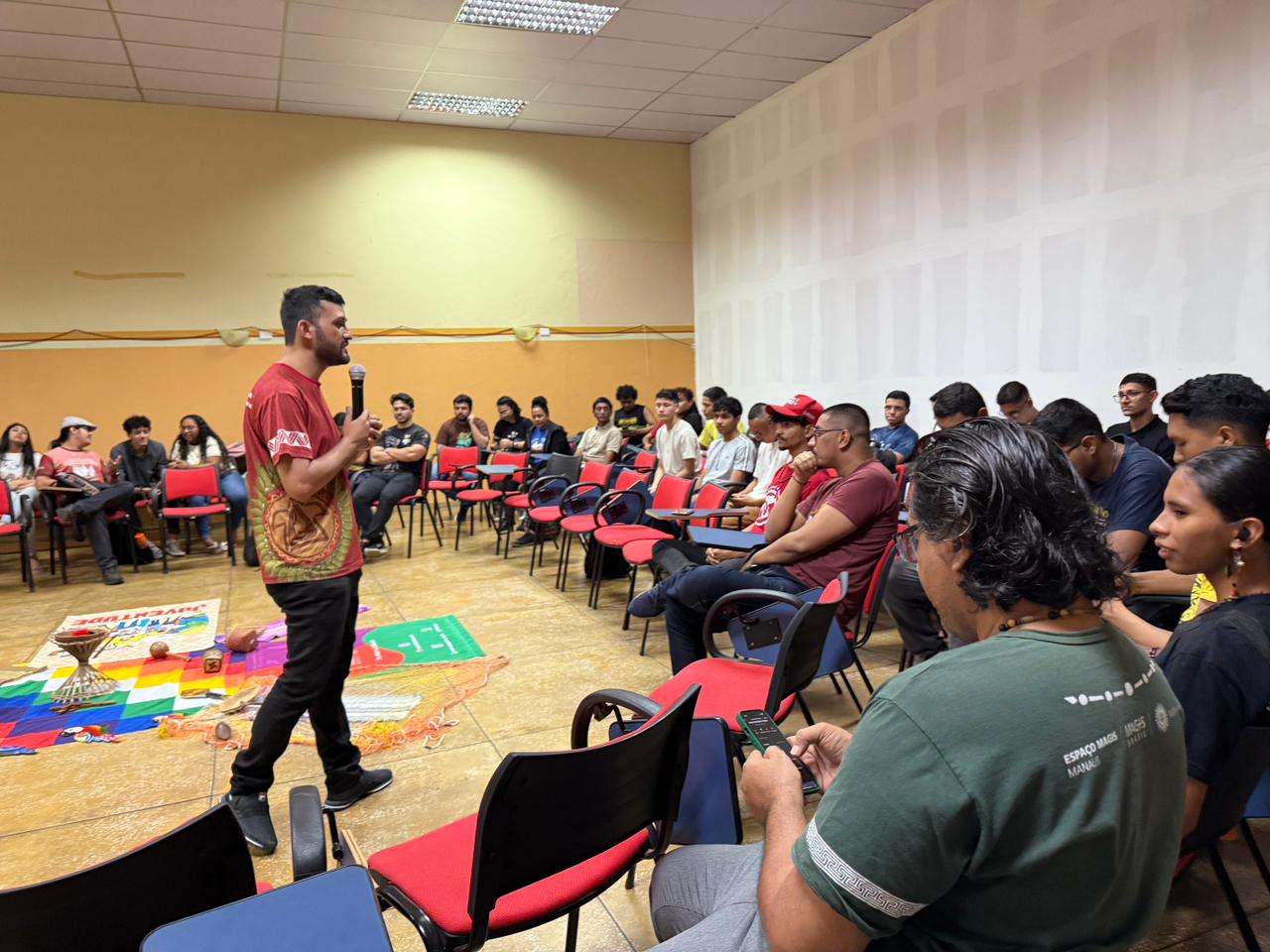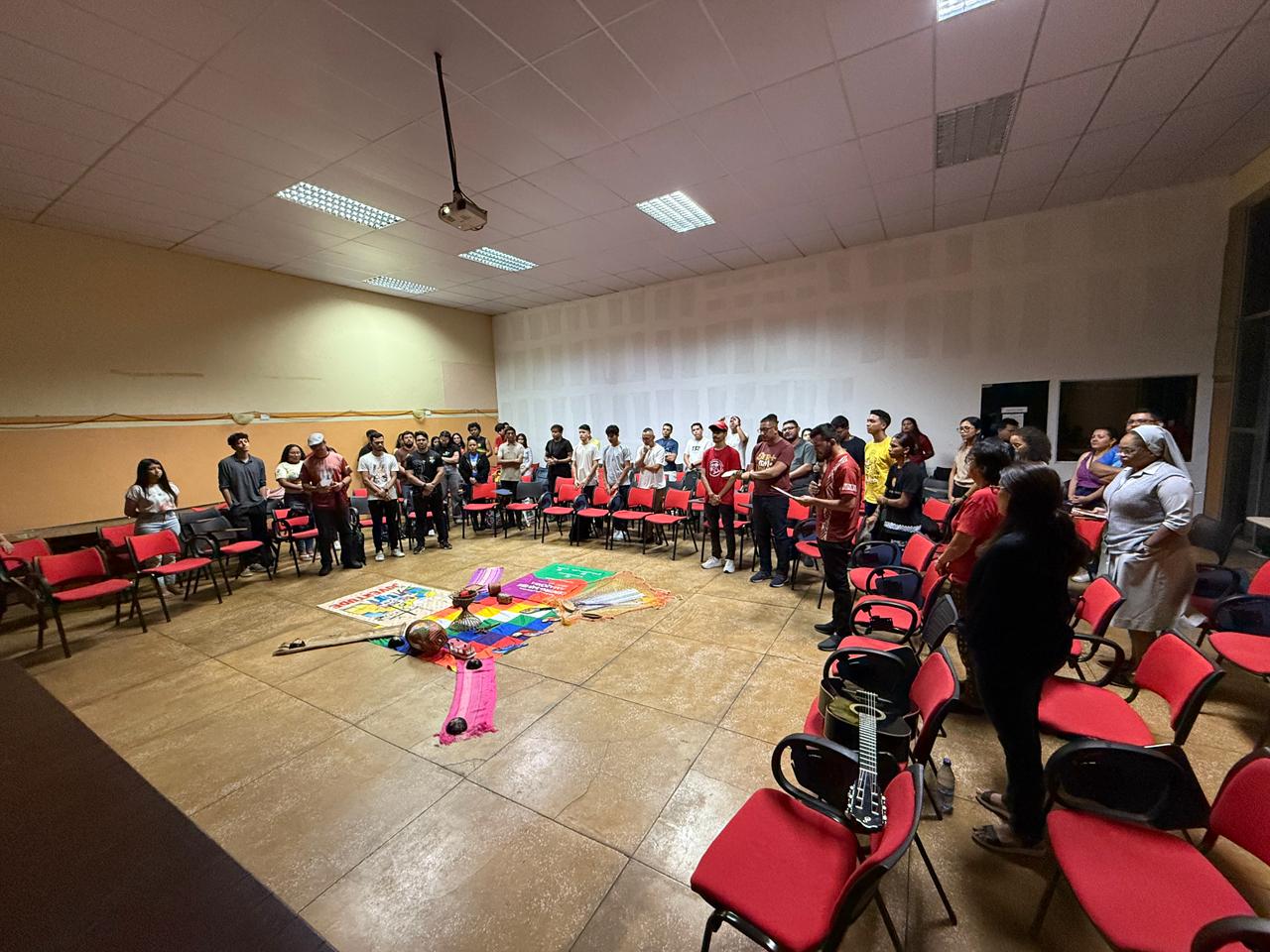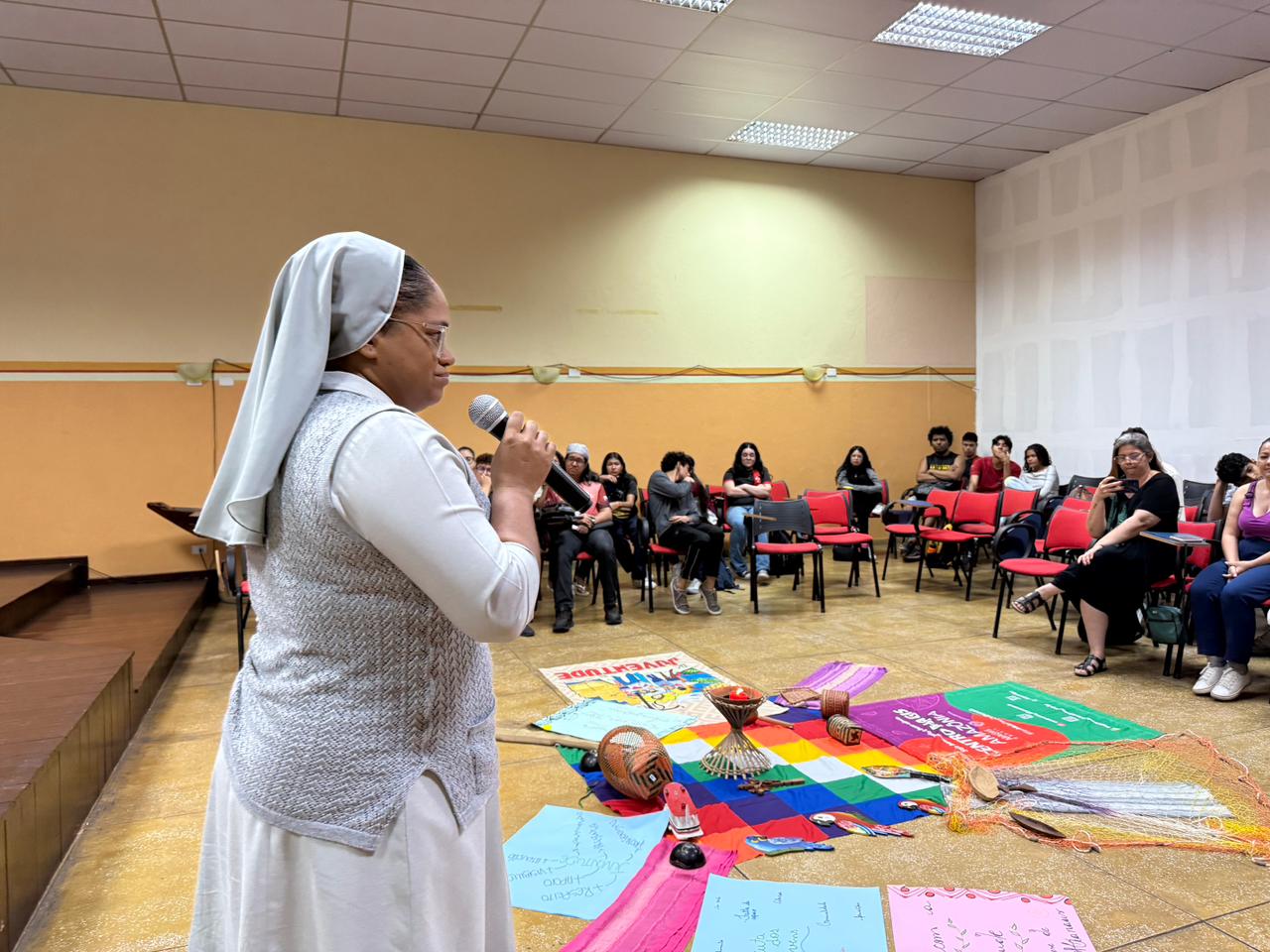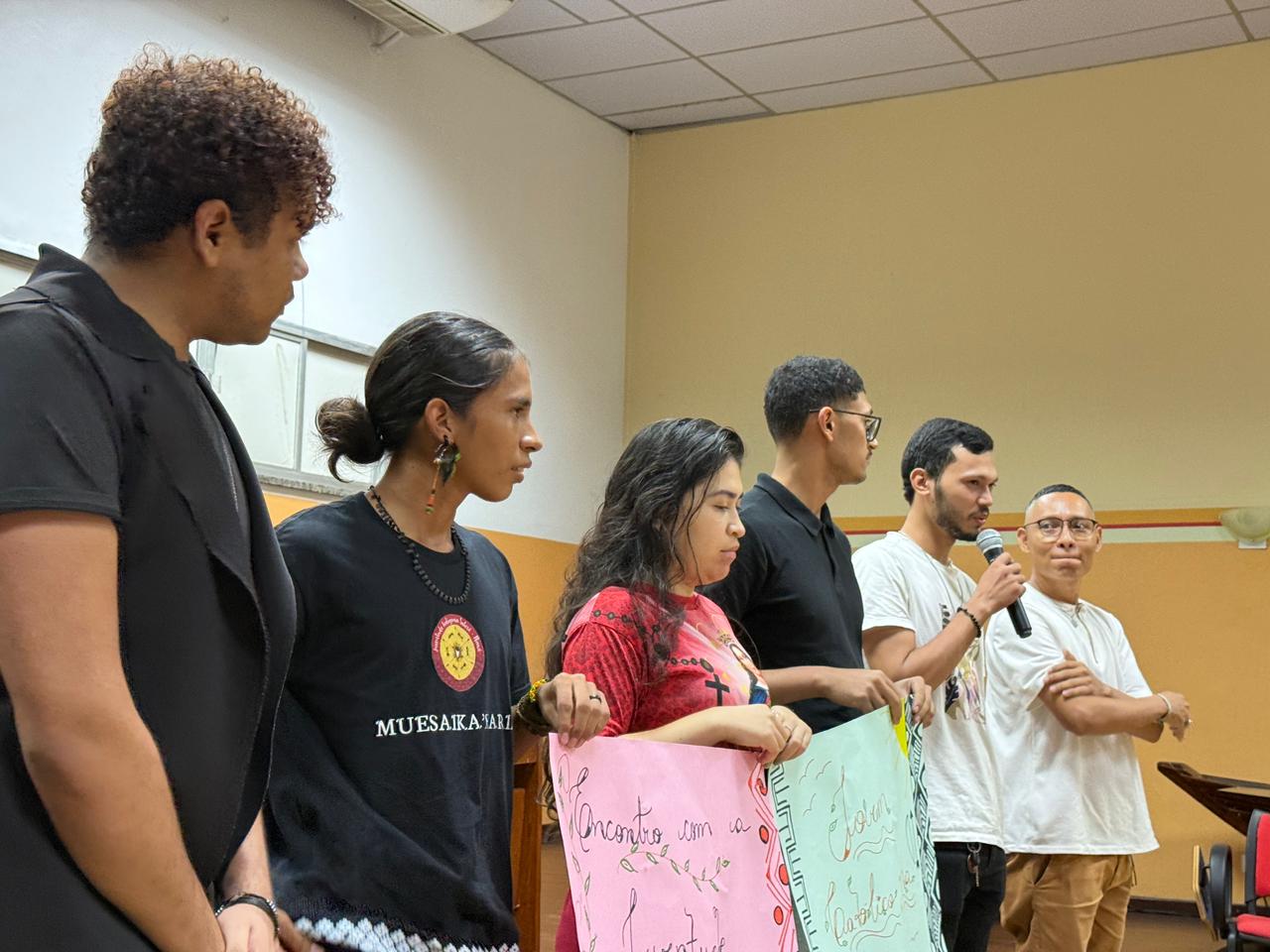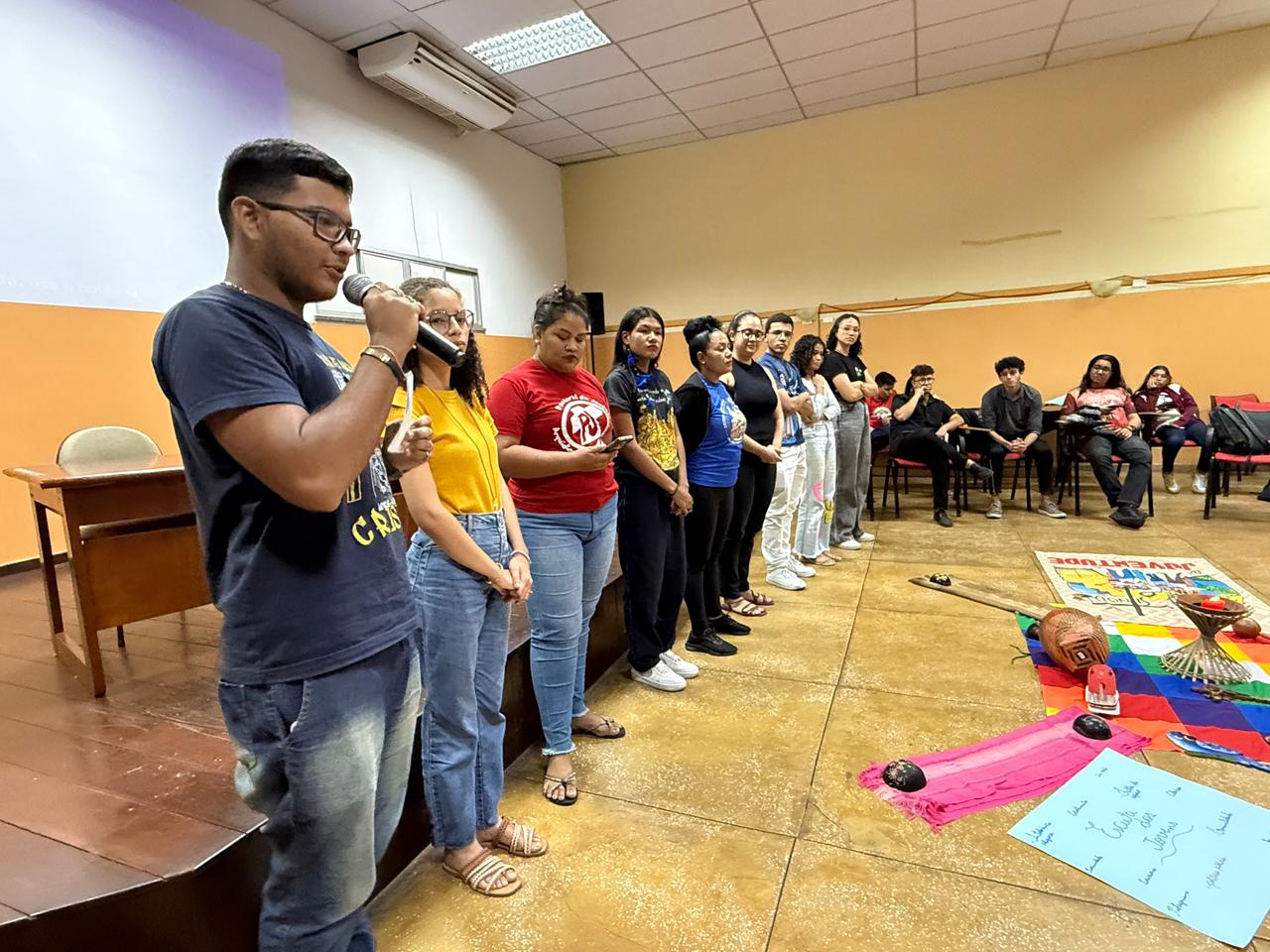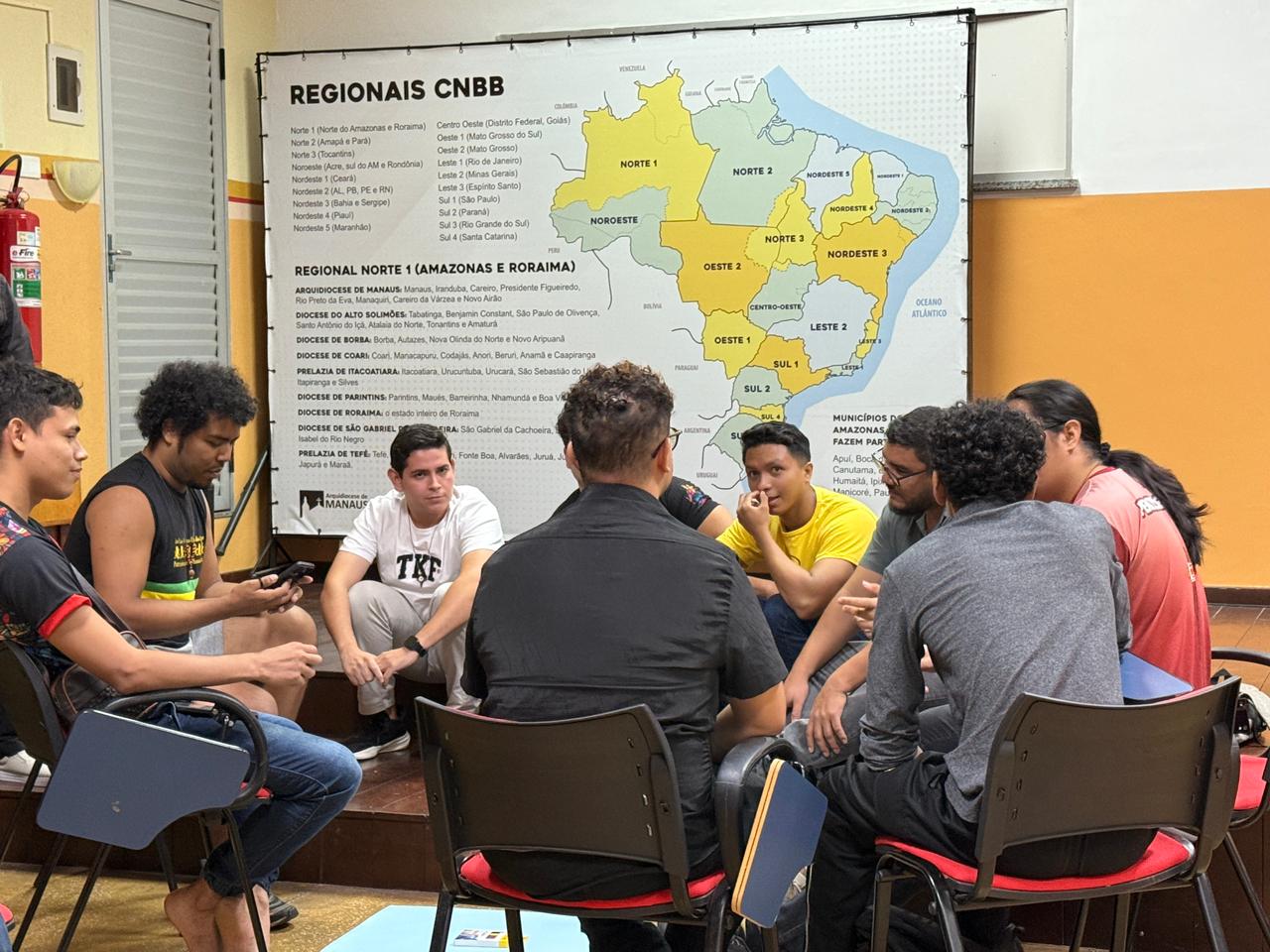As part of the synodal listening process that the Ecclesial Conference of the Amazon (CEAMA) is carrying out throughout the region, the Listening Meeting with Young People of the Archdiocese of Manaus was held in the auditorium of the Metropolitan Curia of Manaus, under the coordination of the archdiocesan Youth Ministry.
The event brought together dozens of young Catholics from different urban and rural communities, who shared with openness and hope their vision of the reality they live in, the challenges they face, and their dreams of a Church that truly walks alongside them.
The activity was attended by Alicia Covaleda (CEAMA consultant), Fernando Rueda (CEAMA communications), Sister Marbelis Monroy (REIBA coordinator), and Sister Sonia Matos (religious delegate from Brazil to CEAMA and member of the Synodal Apostolic Horizons Commission).
Listening to the voice of youth in the Amazon
The meeting began with a moment of prayer, the proclamation of the Gospel, and a presentation of the pastoral and synodal work that CEAMA carries out in the nine countries of the Pan-Amazon region.
Afterwards, the young people divided into working groups to reflect on three guiding questions:
How would you describe your reality as a young Catholic in the Amazon?
How has the Church walked with young people?
What would you recommend to the Church so that it can walk closer to you?
Their answers painted an honest and diverse picture of today’s Amazonian youth: a generation that seeks opportunities for participation, that feels the weight of inequality, but that retains a deep desire to transform reality through faith and community commitment.
“We face many difficulties: prejudice, intolerance, violence, and lack of opportunities, especially in rural areas. But we continue to believe that the Church can be a place of welcome and defense of life,” said one of the groups.
Challenges that call for action: inclusion, listening, and accompaniment
The young people agreed that there is still a significant gap between Church structures and the reality of young people, especially in terms of listening and accompaniment.
They denounced the lack of preparation of some pastoral agents to work with young people, as well as the need to train leaders capable of animating communities and accompanying processes of life and faith with sensitivity and closeness.
“We are often invited to help, but when we really need support, there is no one to listen. The Church must come down from its pedestal and walk with us,” said some participants.
In their reflection, the groups also highlighted the discrimination faced by indigenous youth, who are often excluded or invisible within church spaces.
They stressed the urgency of building bridges of reconciliation and respect, reconnecting indigenous youth with the Church through dialogue, understanding, and appreciation of their cultures.
Likewise, the young people pointed out the importance of welcoming diversity: those who live in vulnerable situations, LGBTIQ+ youth, those who face mental health issues, and those who seek a deep sense of belonging.
Proposals for a younger and more synodal Church
During the second part of the meeting, participants responded to a new question:
“How can CEAMA help the Church connect more with young people and walk alongside them?”
This reflection gave rise to clear and hopeful proposals:
- Promote dialogue and respect between generations, valuing the voice of young people in decision-making.
- Make vulnerable young people and the realities they face in the Amazon more visible.
- Promote youth representation within CEAMA, with spaces for participation and real leadership.
- Enhance the use of digital media and social networks as tools for evangelization and formation.
- Strengthen faith formation, vocational accompaniment, and the social commitment of young people.
- Promote ongoing listening encounters to maintain an active dialogue between youth and the Church.
“We want a Church that dialogues, that listens to us, that takes us seriously, and that helps us transform reality from a place of hope,” the participants expressed at the close of the meeting.
Amazonian youth: protagonists of a Church on the move
Through this space, CEAMA reaffirms its commitment to continue listening to and accompanying Amazonian youth, convinced that their voice is essential to the synodal journey of the Church.
This meeting in Manaus joins other spaces for listening that are being developed with indigenous, religious, and lay communities as part of the discernment process toward the Synodal Apostolic Horizons 2026.
“Young people are not only the future, but the living present of the Amazonian Church,” said Sister Marbelis Monroy, encouraging participants to keep hope alive and faith active in their communities.
A Church that learns by listening
The meeting concluded with a shared call:
that the Church be closer, more fraternal, and more committed to the dreams and challenges of Amazonian youth.
A Church that learns by listening and walks at the pace of young people, who, in their diversity and enthusiasm, continue to be seeds of hope in the heart of the Amazon.
